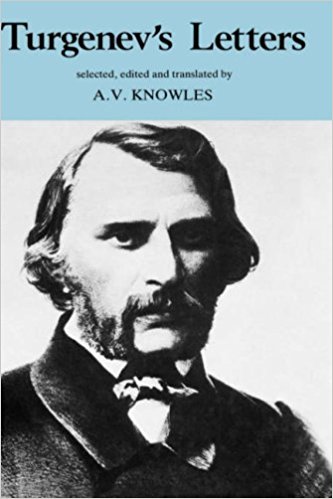‘Ivan Turgenevs whole aspect and temperament was of a larger and manlier kind than I have ever yet encounter¬ed in a scribbler’, Henry James reported to his aunt. These qualities shine forth in A.V. Knowles’s new edition of Turgenev’s letters. Turgenev was attacked by Tolstoy and Dostoevsky for his liberal humanist views, condemned for decades to a frustrating liaison with a married woman, and exiled to his estate by the capricious edicts of the Tsar. But he rarely lost the benign, rough-edged equani¬mity that prompted the Goncourt brothers to describe him as ‘the gentle giant, the amiable barbarian’. Turgenev spent most of his life abroad, but Russia was his subject, and his work was so topical that he could hardly have avoided controversy. His first novel, Rudin, offended the liberal intelligentsia, which saw in his portrait of the voluble idealist Rudin, a satire on its own revolutionary aspirations. From then on, Turgenev found himself caught in the crossfire between the progressives of his generation and a feudal auto¬cracy suspicious of his associa¬tion with some of the very figures he satirized.
May-June 1984, volume 8, No 6

